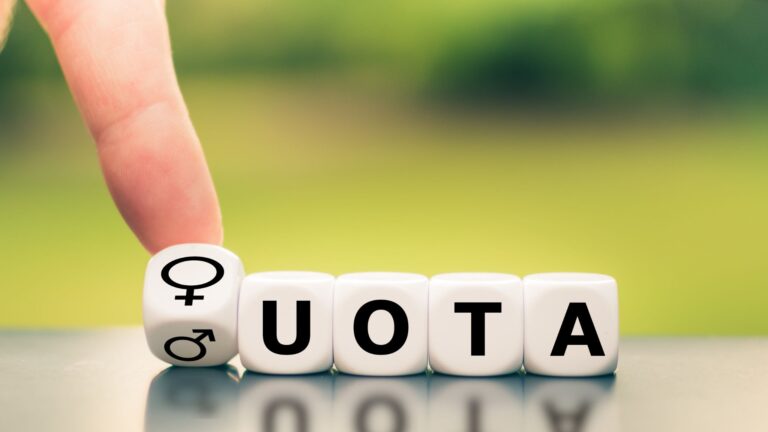As we say goodbye to 2019 and look towards the year ahead, we asked…
From Our Experts: Hopes and Resolutions for 2025 and Beyond

We invited our expert contributors to share their 2025 resolutions for closing the gender gap in politics. What are yours?
Tonia Bui, Founder & Managing Director of PWP Strategies/WeLead Alumna: “Existing research highlights the profound impact of online misinformation and disinformation campaigns targeting women of color running for political office. False and demeaning narratives that exploit gender and racial/ethnic identities aim to undermine their credibility and viability as candidates. The rise of online harassment and abuse, combined with AI-generated content perpetuating harmful stereotypes and spreading falsehoods, are recognized as efforts to hinder the entry and advancement of women of color in politics. In 2025, I envision more research will be conducted on this topic, as well as a renewed focus on empowering women of color candidates with robust political communication strategies to counter misinformation and disinformation campaigns effectively.”
Rebecca DeWolf, Historian and author of Gendered Citizenship: “My hope for Gender on the Ballot in 2025 is that it will continue to grow as a resource for encouraging people to embrace complexity and nuance in their understandings of currents issues, such as reproductive autonomy, voting rights, childcare, social justice, workplace equality, and gender equity. Pieces with rich historical context can help readers engage the ways in which today’s contested issues have a deep history that is layered with patterns of continuity and change.”
Lucy Gettman, Editor, Gender On The Ballot: “My motto for 2025 is “increasing representation of women anywhere, increases representation everywhere.” Many obstacles for women in or aspiring to political leadership are similar to those for women in business, STEM fields, and everywhere women are underrepresented. Barriers to compensation, work-life balance, and access to education and healthcare are just a few of them, and are exacerbated by intersectional factors including race, class, ethnicity, gender identity, ability and other identities. Eliminating barriers anywhere can help women achieve parity everywhere.”
Elisabeth Griffith, PhD, author of FORMIDABLE: American Women and the Fight for Equality, 1920-2020 and Substack’s PINK THREADS: “As an activist and an academic, I want to center stories about women past and present in my writing and speaking. In our diversity and ability to forge connections and create communities, there are examples of women who can inspire and uplift us, urging us to “Keep on keeping’ on,” as Fannie Lou Hamer said. What she actually said was that she was “sick and tired of keeping’ on,” because outrage is exhausting and resistance is hard. But together, among friends and allies, we can find joy in the work.”
Amanda Hunter, Former Executive Director, Barbara Lee Family Foundation: “After a several year streak of continually breaking records of women elected to Congress, 2025 will not bring gains for women’s representation on Capitol Hill. To date, only one Republican woman has been selected to chair a House committee. Although women’s representation in Washington is stagnating, we have seen gains in the states. A record number of women will serve as Governor in 2025 and women will make up the majority in seven state legislatures. I will continue looking for bright spots and growth in 2025, and hope the pipeline of women leaders continues to grow at the state and local level.”
Shruthi Jayaram, Partner, Dalberg Advisors: “In 2025, I hope to see more initiatives instilling support for lifelong civic engagement in American kids, particularly girls in working families. So much of our work in gender equity at Dalberg points to the power of engaging people early in their life to shape lifelong behaviors and values. Garnering early support and interest in activities like voting, engaging with your legislator or elected representative, and even running for office yourself, will be key to strengthening our democracy in 2025 and beyond.”
Paula A. Monopoli, Sol & Carlyn Hubert Professor of Law: “In a post-Dobbs world, we should increase our effort to educate all Americans about the important role women have played in building our nation’s constitutional order. In 2025, I plan to expand my efforts to teach law students about the remarkable women activists who fought to elevate American women to full citizenship. Educating lawyers, judges, legislators, and fellow citizens about women’s history is essential to moving forward toward equality!”
Anne Moses, Ph.D., Founder, IGNITE: “My wish for 2025: we figure out a way to understand and get through to young men, not just for political gain, but so we can actually make some generational progress on gender equality.”






